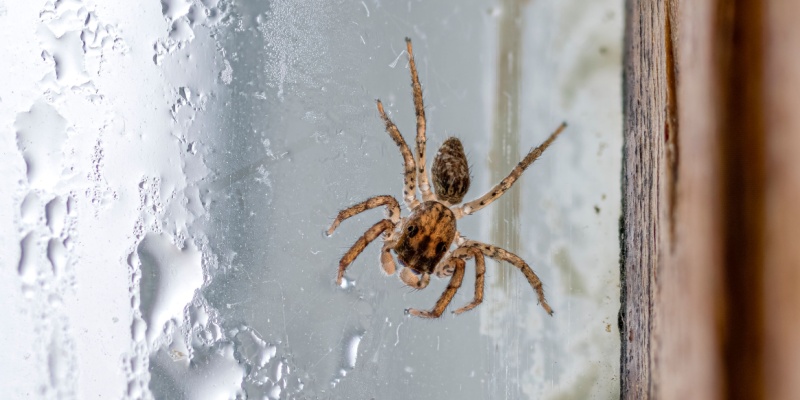Spiders are generally solitary creatures that prefer to stay hidden away from human activity. However, if you start seeing them more frequently or notice certain signs around your home, you might have a spider infestation on your hands. Here’s how you can identify if your home has become a place where spiders love to hang out:
Common Signs of a Spider Infestation
1. Frequent Sightings
- If you’re spotting more spiders than usual around your home—especially during daytime—it could indicate an infestation.
- Pay attention to areas where you typically don’t see them, like living rooms or bedrooms.
2. Webs Everywhere
- Different spider species build different types of webs, ranging from intricate orb webs to messy cobwebs.
- An increase in webs, especially in corners, ceilings, and less frequently used spaces like basements and attics, is a clear sign of spider activity.
3. Spider Egg Sacs
- Spiders lay their eggs in silk sacs, which can be found attached to webs, hidden in crevices, or tucked away in dark corners.
- Each sac can contain dozens of spiderlings, so finding one is a strong indicator that more spiders are on the way.
4. Increased Insect Activity
- Spiders feed on other insects. If you have a high population of insects like flies, mosquitoes, or ants in your home, it could attract spiders.
- Reducing the insect population can help manage the spider problem.
5. Unusual Behavior
- Some spider species are nocturnal and prefer to hunt at night. If you notice spiders actively moving around during the day, it might signal overpopulation or lack of food sources.
High-Risk Areas for Spider Infestations
Certain areas in your home are more prone to spider infestations due to their environment and lower human activity:
- Basements and Crawl Spaces Dark and damp environments are ideal for many spider species.
- Attics These spaces often provide ample hiding spots and are rarely disturbed.
- Garages and Sheds These areas offer plenty of nooks and crannies for spiders to hide.
- Closets and Storage Areas Cluttered spaces provide perfect hiding spots for spiders.
Preventing Spider Infestations
To keep spiders at bay, consider adopting some preventative measures:
1. Declutter Regularly
Keep storage areas organized and clutter-free to reduce hiding spots for spiders.
2. Seal Cracks and Gaps
Inspect your home for cracks in walls, gaps around windows and doors, and seal them to prevent spiders from entering.
3. Reduce Outdoor Lighting
Outdoor lights attract insects, which in turn attract spiders. Use yellow or sodium vapor lights that are less attractive to bugs.
4. Maintain Cleanliness
Regular vacuuming and dusting can help remove webs, egg sacs, and reduce the insect population that spiders feed on.
5. Use Natural Repellents
Essential oils like peppermint oil or vinegar sprays can deter spiders when applied around entry points and common hiding spots.
When to Call a Professional
If the infestation is severe or persistent despite your best efforts at prevention, it may be time to call in professional help:
- Persistent Webs and Sightings If new webs appear shortly after cleaning or if you continue seeing spiders despite preventive measures.
- Health Concerns If there’s a risk from venomous species like black widows or brown recluses.
- Peace of Mind Professional exterminators can provide thorough inspections and treatments tailored to effectively eliminate infestations.
Identifying and addressing a spider infestation early can save you from dealing with larger problems down the line. The pros at All Pest Solutions can help you eliminate spiders from your home quickly and efficiently. Reach out today to schedule a consultation.

